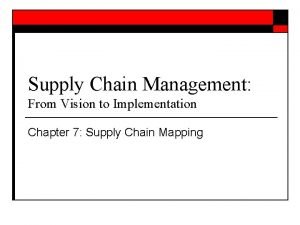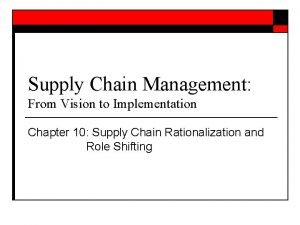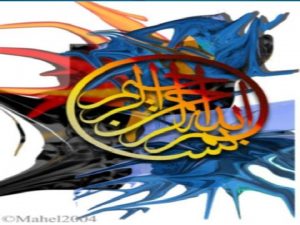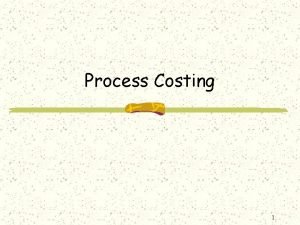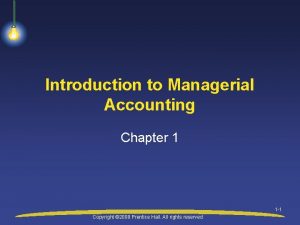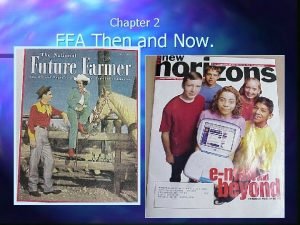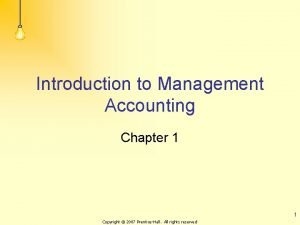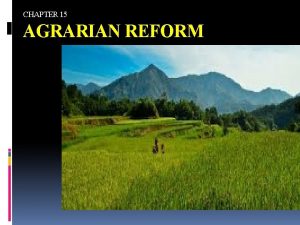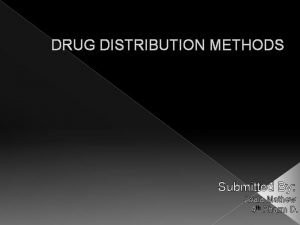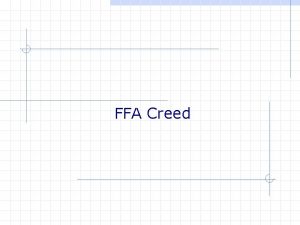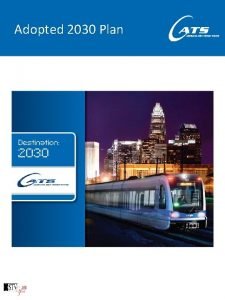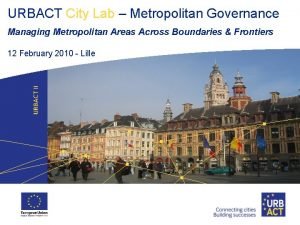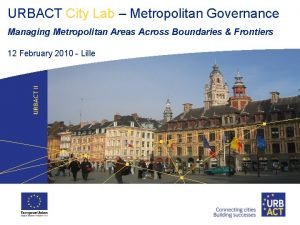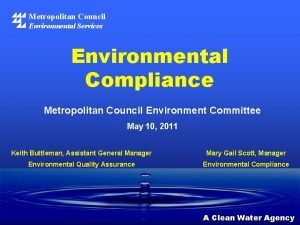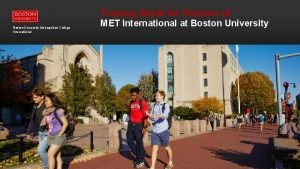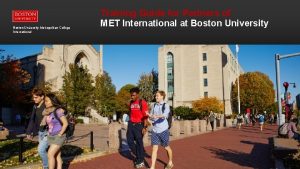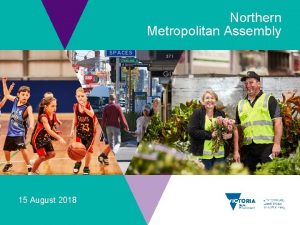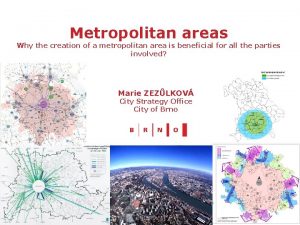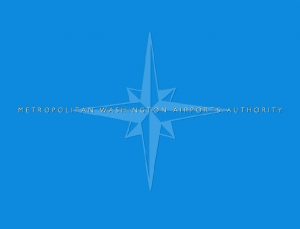Implementation of Adopted Transportation Vision for the Metropolitan














- Slides: 14

Implementation of Adopted Transportation Vision for the Metropolitan Washington Region: Development of Circulation Systems and Green Space Preliminary Evaluation Observations Joe Crossett, Trans. Tech Management TCSP Workshop, Sept. 14, 15 2000 1

Project Overview Sponsor: National Capital Region Transportation Planning Board/ Metropolitan Washington Council of Governments (TPB/COG) Yr. Funded: 1999 Total Cost: $380, 000 grant + $100, 000 in-kind match (Includes $80, 000 for evaluation) 2

Goals & Objectives Goal: Build stakeholder support for two frequently overlooked elements of region’s Transportation Vision Statement: – Design circulation systems within regional core & regional activity centers that maximize use of transit, ped. , & bike facilities – Integrate greenways into a connected regional greenways system Objective: Produce two reports that establish regional frameworks for greenways and circulation systems respectively 3

Critical Challenges TCSP funding designed to get more from the region’s MPO planning process: • Promoting Visibility: Greenway & circulation systems are low priorities in area’s project selection process • Building Consensus: Regional planning across 7 counties, 2 states, and the District of Columbia is complex • Securing Implementation: TPB’s project implementation role is indirect – state & local agencies allocate funds 4

Innovative Development Process Stakeholder-Led Committees • Two-track process with separate committees • Committees led by 2 key elected officials on TPB Board • Each committee included 20+ key stakeholder group representatives • Planning consultant & TPB staff provided technical support Priority Projects Stakeholder Advisory Committees Consultants TPB Staff 6

Stakeholder Participants Greenways Committee: Circulation Sys. Committee: • • • • Washington Parks & People Anacostia Watershed Society Trust for Public Lands Washington Area Bicyclist Assoc. American Farmland Trust Potomac Heritage Trust National Park Service MD Greenways Commission City of Takoma Park Sierra Club DC Office of Planning No VA Planning District Commission • • • Montgomery Co. Dept. of Public Wks Assoc. of Ped. & Bicycle Professionals MD Transit Administration Surface Transp. Policy Project TYTRAN Washington Area Bicyclist Assoc. Action Committee for Transit Action Partnership Dulles Area Transportation Assoc. Private Providers Task Force 7

Five Key Steps • • • Inventory region’s existing greenways & circulation systems Inventory 150 proposed greenway projects/50 circulation system projects, based on consultation with state/local planners Select 8 -10 regional priority projects for each report Develop persuasive profiles of priority greenway and circulation systems projects Take to TPB Board for final endorsement 8

Timeline 1999 2000 2001 Sept: Committees Established Mar: Grant Submitted May: Grant Awarded Oct-April: 4 Greenway Committee Mtgs Held Oct: TPB Approval Feb-June: 4 Circ. Syst. Committee Mtgs Held IMPLEMENT 10

Innovative Elements • Spotlight on non-traditional projects: Improves visibility of TCSP-type projects that are typically a low priority • Stakeholder-led committees: Decision-making process strengthens buy-in for non-traditional projects, achieves consensus. • Project-level recommendations: Priorities described in reports are actual projects with local support, hence stronger implementation feasibility 11

Evaluation Methodology Independent evaluation consultant: • Observe meetings, interview participants, review documents • Describe project innovations/lessons learned • Measure process & products • Evaluation timeframe too short to measure outcomes 12

Sample Evaluation Measures – Process Element • Did process help build constituency for projects among stakeholders? – Range of stakeholders is adequate? – Effective use of stakeholders? • Was a systematic approach for process used? – Thorough project inventory? – Effective project selection criteria? – Adequate information for decision-making? 13

Sample Evaluation Measures Product Element • Does report create cohesive regional vision? – Support of local agencies for projects selected? – Inter-jurisdictional coordination? – Regional connectivity? • Does report provide sufficient implementation guidance? – Funding opportunities? – Barriers to implementation? – Political feasibility? 14

Conclusions • A “work in progress” – but signs of success are promising… • What if no funding had occurred? Evidence is clear – these types of projects are not in the 2000 CLRP/TIP, despite Transportation Vision. • Big question, will they be there next year or year after? • Keep stakeholders involved/accountable • Apply process to other types of project development 15

Outside praise for greenways report: “your report is a wise investment of federal funds (that) provides an overarching framework & blueprint for local jurisdictions… It should become a model for the nation. ” (Tom Downs, former CEO, Amtrak) 16
 Supply chain management from vision to implementation
Supply chain management from vision to implementation Supply chain management from vision to implementation
Supply chain management from vision to implementation Curriculum development process in pakistan introduction
Curriculum development process in pakistan introduction Normal loss treatment in process costing
Normal loss treatment in process costing Meaning of unit costing
Meaning of unit costing Managerial accounting chapter 1
Managerial accounting chapter 1 Who wrote the ffa creed? when was it adopted?
Who wrote the ffa creed? when was it adopted? Who wrote the ffa creed
Who wrote the ffa creed Ffa cread
Ffa cread Assembly drawing
Assembly drawing Ffa colors and meaning
Ffa colors and meaning The institute of management accountants adopted the ______.
The institute of management accountants adopted the ______. Republic act no. 821
Republic act no. 821 What is drug basket method
What is drug basket method Ffa third paragraph
Ffa third paragraph
